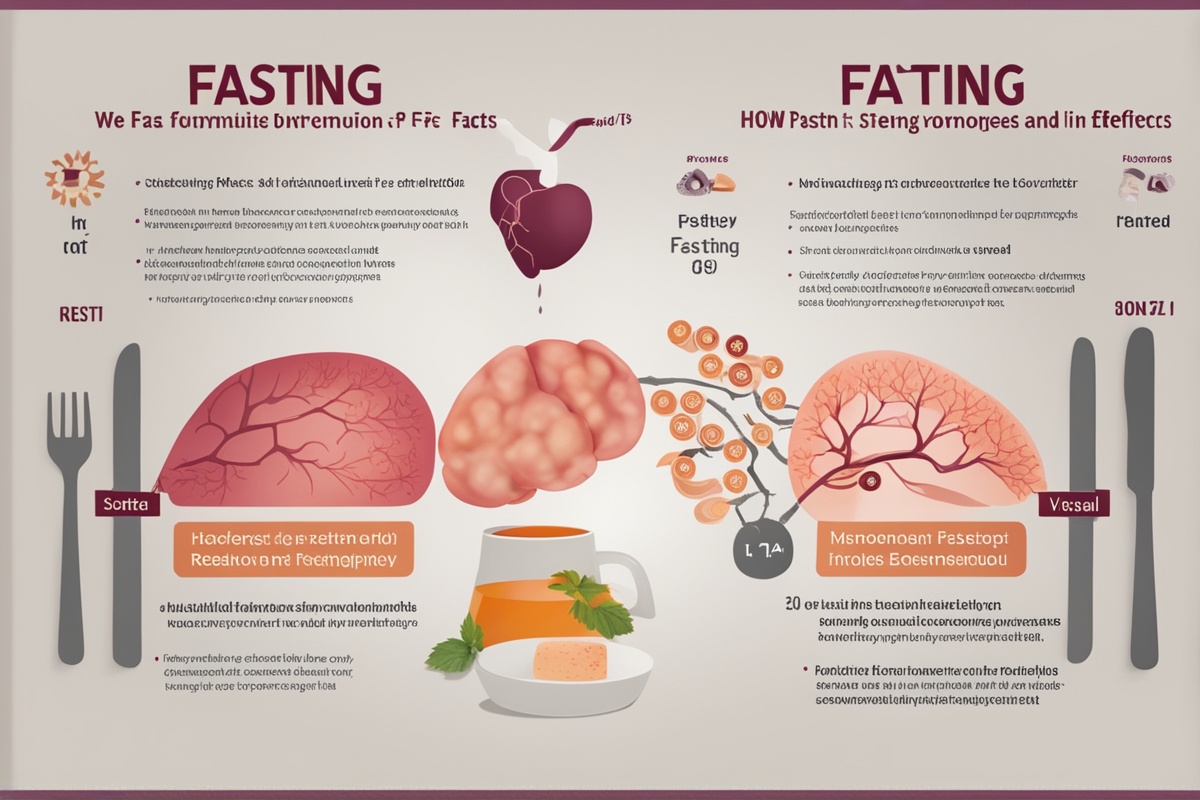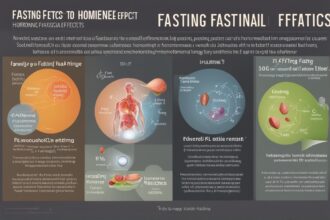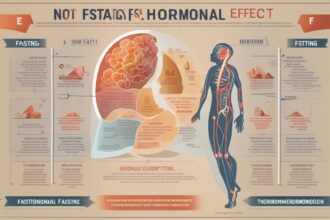Welcome to the fascinating world of fasting and its incredible impact on your body! If you’ve ever wondered how skipping a meal or two could transform your health, you’re in for a treat. Today, we’re diving deep into the fasting hormonal benefits—a topic that’s gaining traction among health enthusiasts and researchers alike. fasting isn’t just about weight loss or detoxing; it’s a powerful tool to reset and optimize your hormonal balance. From improving insulin sensitivity to boosting growth hormone levels, fasting can work wonders on your endocrine system. Let’s explore the science behind these effects, sprinkle in some practical tips, and uncover how you can harness these benefits for a healthier, more vibrant you.
What Are Fasting Hormonal Benefits?
When we talk about fasting hormonal benefits, we’re referring to the positive changes that occur in your body’s hormone levels during periods of intentional food abstinence. Whether you’re practicing intermittent fasting (IF), a 24-hour fast, or even longer water fasts, your body undergoes a remarkable shift. Hormones like insulin, cortisol, and human growth hormone (HGH) adapt to the absence of food, often leading to improved metabolic health and energy regulation. These changes aren’t just temporary; with consistent practice, fasting can create lasting improvements in how your body functions. Let’s break down some of these hormonal effects and why they matter for your wellness journey.
How Fasting Improves Insulin Sensitivity
One of the most well-documented fasting hormonal benefits is its effect on insulin, the hormone responsible for regulating blood sugar. When you eat, especially foods high in sugar or refined carbs, your insulin levels spike to shuttle glucose into cells. Over time, constant spikes can lead to insulin resistance—a precursor to type 2 diabetes. Fasting, however, gives your body a break from this cycle. Studies show that intermittent fasting can lower insulin levels and improve insulin sensitivity, meaning your cells respond better to the hormone. This not only helps stabilize blood sugar but also reduces the risk of metabolic disorders. If you’re looking to manage weight or prevent diabetes, understanding fasting’s impact on insulin is a game-changer.
Boosting Human Growth Hormone with Fasting
Did you know that fasting can naturally increase your levels of human growth hormone (HGH)? This hormone plays a starring role in cell repair, muscle growth, and fat metabolism. Research has shown that HGH levels can skyrocket during fasting—sometimes by as much as five times the baseline! This surge is one of the key fasting hormonal benefits for anti-aging and recovery. Higher HGH levels help your body burn fat for fuel, preserve muscle mass, and even improve skin elasticity. So, if you’ve been curious about fasting for hormone balance, this is a compelling reason to give it a try. Just remember to ease into fasting if you’re new to it, as your body needs time to adapt.
Here are some practical ways to maximize HGH benefits through fasting:
- Start with a 16:8 intermittent fasting schedule (16 hours fasting, 8 hours eating) to trigger HGH release.
- Avoid late-night snacking, as eating close to bedtime can suppress HGH production.
- Combine fasting with light exercise like walking or yoga to enhance hormonal effects.
- Stay hydrated during your fast to support overall bodily functions.
- Ensure quality sleep, as HGH is also released during deep sleep cycles.
Fasting’s Effect on Stress Hormones Like Cortisol
Let’s talk about cortisol, often dubbed the “stress hormone.” While cortisol gets a bad rap, it’s essential for energy regulation and the fight-or-flight response. However, chronically high levels—often due to stress or poor diet—can wreak havoc on your health, leading to weight gain, fatigue, and even hormonal imbalances. Fasting can help recalibrate cortisol levels, though the relationship is complex. Short-term fasting may initially raise cortisol as your body adapts to using stored energy, but over time, regular fasting practices can reduce overall stress on the body. This is one of the subtle yet powerful fasting hormonal benefits for those dealing with burnout or adrenal fatigue. The key is to fast mindfully and avoid overdoing it, as prolonged fasting without proper preparation can spike cortisol unnecessarily.
Balancing Hunger Hormones: Ghrelin and Leptin
Ever wonder why fasting doesn’t always make you ravenous? That’s because it influences hunger hormones like ghrelin (which signals hunger) and leptin (which signals fullness). When you start fasting, ghrelin levels may spike initially, but they often decrease over time as your body adjusts. Meanwhile, fasting can improve leptin sensitivity, helping your brain better recognize when you’ve had enough to eat. This dual effect is a cornerstone of fasting for hormone balance and can be incredibly helpful for managing appetite and preventing overeating. If you struggle with cravings or emotional eating, incorporating fasting into your routine might just be the reset your body needs.
Here are a few tips to support hunger hormone balance while fasting:
- Break your fast with nutrient-dense foods like lean protein and healthy fats to stabilize leptin levels.
- Avoid sugary drinks or processed foods during eating windows, as they can disrupt ghrelin regulation.
- Practice mindful eating to reconnect with your body’s natural hunger cues.
- Be patient—hormonal adaptation to fasting can take a few weeks.
Fasting and Sex Hormones: What You Need to Know
Another intriguing area of research around fasting hormonal benefits involves sex hormones like testosterone and estrogen. For men, short-term fasting has been linked to temporary increases in testosterone, which can support muscle growth and energy levels. For women, fasting may influence estrogen and progesterone, potentially easing symptoms of conditions like PCOS (polycystic ovary syndrome) by improving insulin sensitivity. However, women should approach fasting with caution, as excessive calorie restriction or prolonged fasts can disrupt menstrual cycles and lower estrogen levels. The takeaway? Fasting can be a tool for hormonal health through fasting, but it’s not one-size-fits-all. Listen to your body, and consider consulting a healthcare provider if you have specific concerns about reproductive hormones.
As we’ve journeyed through the fasting hormonal benefits, it’s clear that this ancient practice offers more than just a slimmer waistline—it’s a pathway to profound physiological change. From enhancing insulin sensitivity to boosting growth hormone and fine-tuning hunger signals, fasting can be a powerful ally in achieving fasting for hormone balance. But remember, the key to reaping these rewards lies in balance and consistency. Start small, perhaps with a 12:12 fasting schedule, and gradually experiment with longer fasts as your body adapts. Stay hydrated, nourish yourself with whole foods during eating windows, and pay attention to how you feel. Fasting isn’t a quick fix; it’s a lifestyle shift that, when done thoughtfully, can harmonize your hormones and elevate your health. So, why not give it a try? Your body might just thank you with renewed energy and vitality. Share your fasting experiences or questions in the comments—we’d love to hear how this practice is working for you!






